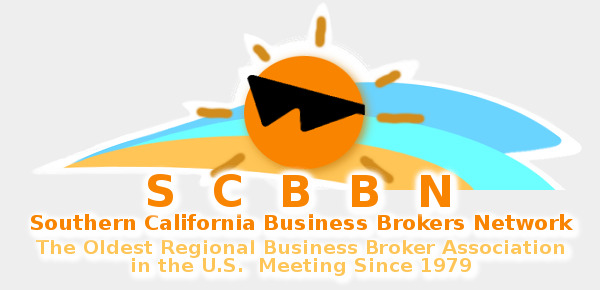Do You Know What That Auto Body Shop Business is Worth?
When buying a business, you want to know what it is worth. So “What is that auto body shop worth? ” is the most asked question during my twenty five years as an auto body shop business broker. “How do I appraise a body shop?” is the second most asked question. In 1997, I had been asked by two different attorneys to do appraisals of auto body shops. The first appraisal was as an expert witness to assist in a partnership dissolution. The second appraisal was as expert witness for a marriage dissolution. (That is what we lay people call a divorce). These methods can be used to appraise the value of a body shop.
The Three Ways to Appraise a Business
1. The ASSET VALUATION METHOD.
Use the asset valuation method when a body shop does less than $400,000 a year in gross income. The seller is making wages, but no real profit above what he would be paid if working for another. On this size business, a buyer will pay for the assets of the business but little or nothing for goodwill (reputation and customer list). The equipment is usually worth between $50,000 and $100,000, depending on how many frame machines the business owns and how nice a spray booth the business owns.
I have seen some specialized shops sell for more than the above number because they have a truck spray booth or a second business attached to the main business. Examples of attached business might be an auto repair shop or towing operation. Also the location, size and real estate rental amount will influence the value of any business, to some degree.
2. The GROSS SALES METHOD.
This is used when the sales are over $1,500,000 a year but the profit is unknown or financials are not available or not reliable. By experience, a body shop buyer can make reasonable estimates of future profits, if they have some basic information. The basic information includes rent, source of business, and the desirability of the location. The source of business may be Direct Repair Program (DRP) where an insurance company sends drivers to the shop. Other sources may be a drive in, towing service or car rental agency.
When this method is used, the value appears to be about three months’ sales or 25% of the last twelve months sales. This method is not very reliable with sales of less than $1,500,000, because being profitable is very doubtful. Why is this breaking point $1,500,000 in annual sales? Experience. Multi-store buyers will have a well paid manager, instead of a working owner, so many professional buyers figure their breakeven point is around a million.
Less than $1,500,000 in sales is not even worth their time. Of course we know that there are exceptions to the rules. Some of the exceptions are A) When a new location will be a satellite store to a bigger location. B) The buyer must have a location in a specific area to please a DRP. C. To get rid of a competitor.
3. The NET PROFIT METHOD.
This is the third and most used method of evaluating any business, including body shops. This method is based on the idea that a business is worth the income it generates, in profit and benefits, for an owner. Body shops, like so many other small businesses, often do not show a profit at the end of the year. Strange, how so many businesses of different sizes all just happen to end up with little or no profit. What I find really amazing is that the IRS doesn’t do more audits of businesses then they currently do.
As a result of showing poor profits on the books, it becomes very difficult to use the net profit method for appraising many small businesses. I can quite often find hidden profits of a business by adding to the tax records items we call ‘owner’s benefits’. These include: Owners salaries (if a corporation), personal autos and all the related expenses used by the owner and his family that are written off against the business, life insurance and health insurance for the owners. Depreciation is also a hidden profit that is usually added back in to the taxable profit to help build up the total owners benefits. And lastly, personal utilities, phones, trips, etc. that are deducted on the tax return but are not really costs to run the business.
So What is Happening in the Market?
After saying all this, what is the value of a business based on the net profit method? People buying a businesses, especially auto body shops, appear to buy for between one to two years adjusted profit (book profit plus owners benefits added back in). Larger body shops doing over $2,000,000 in annual sales may sell for much more. This is because the owner is making much more money than just his salary. A buyer will consider part of the profit a return on the seller’s financial investment.
Very large body shops that are being bought by consolidators which are public corporations are evaluated differently. Their sale price is primarily based on their return on investment (ROI). (ROI is percentage the profit is of the cash purchase price of the business.) These big buyers can afford to pay between five times and ten times annual net profit, after deducting all officers’ salaries and perks. (That was in the late 1990s. In 2012 larger shops are rarely changing hands and when they do the prices are for far less money.)
Often these consolidator’s purchases include two important restrictions. First: The business is bought for little or no real money. They use restricted corporate stock that is not negotiable for two years. And second: The management is required to stay and run the company for some period of years.
The Bottom Line on Buying a Business
The bottom-line, as I see it, is that if you sold a large shop under these terms and conditions, you sold your soul, not your business. One last comment on selling to large corporations. Heaven help the seller who sells his business for corporate stock or the corporation’s bonds. When the buying company goes broke or the stock market crashes, the seller looses. I had a close friend sell his company for mostly cash and some seller carry back financing in December 1997. By February 1998 the buying company was in bankruptcy, making the paper my friend held worthless.
Conclusion
Appraising a business, especially body shops, is an art not a science. No two people will appraise the value of a business the same. It is amazing that what one buyer thinks is a great asset is what another buyer thinks is a major negative. Differences of opinion are what make life interesting.
As a final word, I will make one comment about buying a business. I find that professional appraisers or other CPAs opinion of value is much greater than what the marketplace will pay. This is not because the appraisers do not know what they are doing, because they do. It is just that the market places a much higher risk on buying a body shop than the accountants do. Higher risk means the market offers a lower price.
Creative Commons Attribution: Permission is granted to repost this article in its entirety with credit to Business Buying Services and a clickable link back to this page.
Who Am I?
You should know about who advises you, so I show you my qualifications as a business broker. As a new business broker in 1992, I specialized in one type of business. My auto mechanic suggested that I specialize in auto body shops, because they were a very profitable. Being a very aggressive broker, I listed and marketed over 100 auto body shops in my first year. Over the years, I have probably sold close to 1,200 auto shops. These auto shops were of all sizes and located across the country, so I have a very broad experience. Today I spend a large portion of my time specializing in appraisals and doing due diligence (fact finding) when assisting buyers to buy all kinds of businesses. I give expert witness testimony in court cases occasionally when the deal goes sour and ends up in court. My skills are so respected that I have even been chosen as the expert witness for both sides of the law suit.
.




